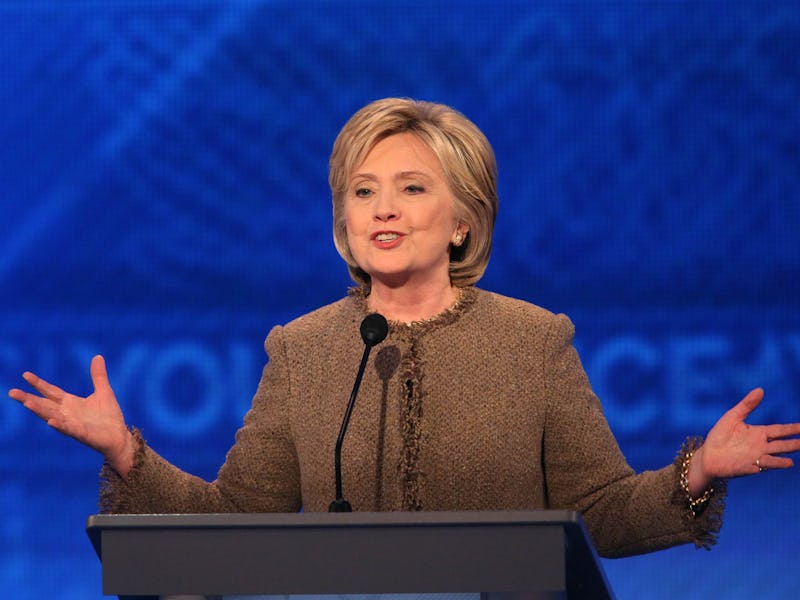Democratic Debate Addresses Tim Cook's Approach to Encryption
Clinton and O'Malley comment on the between national and personal security.

Under the bright lights of Saint Anselm College in Manchester, New Hampshire on Saturday night, former Secretary of State Hillary Clinton said she hopes “there could be a Manhattan-like project” between the tech industry and government when it comes to keeping America safe while respecting the privacy of its citizens.
Right after reprimanding former Maryland Governor Martin O’Malley for cutting her off repeatedly, co-moderator of the Democratic debate, ABC’s Martha Raddatz, questioned Clinton on cybersecurity.
Though the internet has been a great tool for political advocacy and for applying checks and balances to established governmental and criminal organizations, cybercrime has become a hot-button issue in the days of ISIS and Al Qaeda. While tech companies are dedicated to preventing hacking in order to protect our deepest darkest secrets and bank accounts, the government is worried about what the bad guys would do with this same technology.
Raddatz’s exact words were, “I want to talk about a new terrorist tool used in the Paris attacks, encryption. FBI Director James Comey says terrorists can hold secret communications which law enforcement cannot get to, even with a court order. You’ve talked a lot about bringing tech leaders and government officials together, but Apple CEO Tim Cook said that ‘removing encryption tools from our products all together would only hurt law-abiding citizens who rely on us to protect their data’,” she queried. “So, would you force him to give law enforcement a key to encrypted technology by making it law?”
Cook noted at The Wall Street Journal’s technology conference last month that he doesn’t know how to protect the public’s privacy without encryption, calling it a “backdoor that’s only for the good guys.” If Apple weakens encryption for the FBI, it’s also doing so for the nastiest terrorists.
Clinton responded that she is optimistic that the government won’t have to take action. “I would not want to go to that point,” she said. “Otherwise law enforcement is blind before, blind during, and unfortunately blind after. So we always have to balance liberty and security, privacy and safety. But I know law enforcement needs the tools to keep us safe.”
When it gets down to the nitty gritty of it, she admits she doesn’t know enough about the technology to offer a solution. She sees the need for access to this information, but concedes that, “Maybe the backdoor is the wrong door.”
O’Malley did add in his enthusiastic opinion. “I believe we never should give up our privacy. We should never give up our freedoms in exchange for a promise of security.” But then he neglected the details of the original inquiry that involved this being about communications for which “law enforcement cannot get to even with a court order.” Sometimes when you’re trying to make a point, you forget the original premise.
And, of course, Clinton closed out her big night at the podium with the six most popular words this week: “May the force be with you.” And also with you.